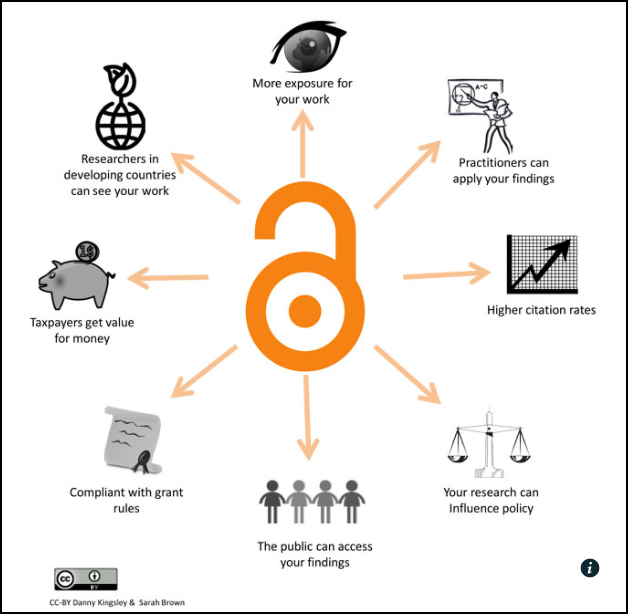

Open access (OA) means making research publications freely available so anyone can benefit from reading and using research.
Open access can be more than making research available to read, but also allowing others to re-use that research. Research data and books are also increasingly made available openly.
Open access is part of a wider ‘open’ movement to encourage free exchange of knowledge and resources in order to widen access and encourage creativity.
SHB Online. (2019). What is Open Access? (subtitles) [Video]. https://www.youtube.com/watch?v=676JM1M_gFg. Under the Creative Commons Attribution license (reuse allowed).
Source
Open Access can bring about various benefits:

Kingsley, D., & Brown, S. Benefits of open access [Image]. https://commons.wikimedia.org/wiki/File:Benefitsofopenaccess_cc-by_logo.pd_eng.jpg. Under the Creative Commons Attribution 4.0 International license.
When referring to OA publishing, there are two mainstream approaches, commonly referred as Gold OA and Green OA. The distinction between gold and green is only about venues, and not about user rights, or “fee or free”.
The two approaches are:
Green Open Access
Gold Open Access
Some other approaches which may be of attention are:
Diamond/Platinum Open Access
Bronze Open Access
a gateway to discover information of refereed journal articles arising from research projects funded by Research Grants Council in Hong Kong
Find more resources on open access that are available at HKU Libraries.
 Email-a-Librarian (To: Open Access)
Email-a-Librarian (To: Open Access)